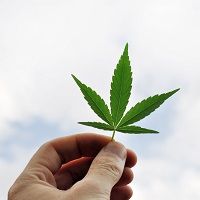Article
Medical Marijuana: Study Finds Evidence Lacking
Author(s):
Medical marijuana's effectiveness is far from scientifically proven, physicans argue in an editorial and research article published in JAMA. They also question whether the rush to try cannabinoids on patients is merely a way to justify recreational use.

Practice may have outpaced research when it comes to finding effective uses for cannabinoids in treating illnesses and ailments.
In an editorial and in a research study published June 23 in JAMA, authors argue that the US states that have legalized medical marijuana have done so mostly before any reliable evidence of efficacy is in.
Though there is some limited scientific evidence that the substance works for nausea and vomiting from chemotherapy, specific pain syndromes and relief from spasticity from multiple sclerosis, there is far less proof that it works for many other conditions, Deepak D’Souza, MD, and Mohini Ranganathan, MD, write in an editorial.
In fact, they suggest, it may be that state actions in legalizing medical marijuana are just a front for an attempt to legalize its recreational use.
If that is true, “then the medical community should be left out of the process, and instead marijuana should be decriminalized,” the authors write. Conversely, if the goal is really facilitating medical use, cannabinoids should be subject to the same rigorous US Food and Drug Administration scrutiny that any new drugs get. Those would include “adequately powered, double-blind, randomized, placebo/active controlled clinical trials to test short- and long-term efficacy and safety,” the authors wrote.
The physicians’ comments are based in part on an accompanying article in which Penny Whiting, PhD, of the University of Bristol, Bristol, UK and colleagues in several other countries surveyed 79 studies and 28 databases with information on randomized trials of cannabinoids.
“Most trials showed improvement in symptoms associated with cannabinoids, but these associations did not each statistical significance in all trials, Whiting wrote.
“There was low-quality evidence suggesting that cannabinoids were associated with improvements in nausea and vomiting due to chemotherapy, weight gain in HIV infection, sleep disorders and Tourette syndrome,” the researchers concluded.
They also said that cannabinoids were associated with an increased risk of short-term adverse events.
In the editorial, the physicians noted several potential hazards of using cannabinoids, as well as potential legal consequences for doctors who provide it to patients.
The US Drug Enforcement Agency still classifies marijuana as a Schedule I substance. There are also liability questions, such as what would happen if a patient under the influence of marijuana obtained from a physician had a serious motor vehicle accident.
“Since medical marijuana is not a life-saving intervention, it may be prudent to wait before widely adopting its use until high-quality evidence is available to guide the development of a rational approval process,” the editorial concluded. The authors are affiliated with the Yale University School of Medicine’s, department of psychiatry in New Haven, CT.





